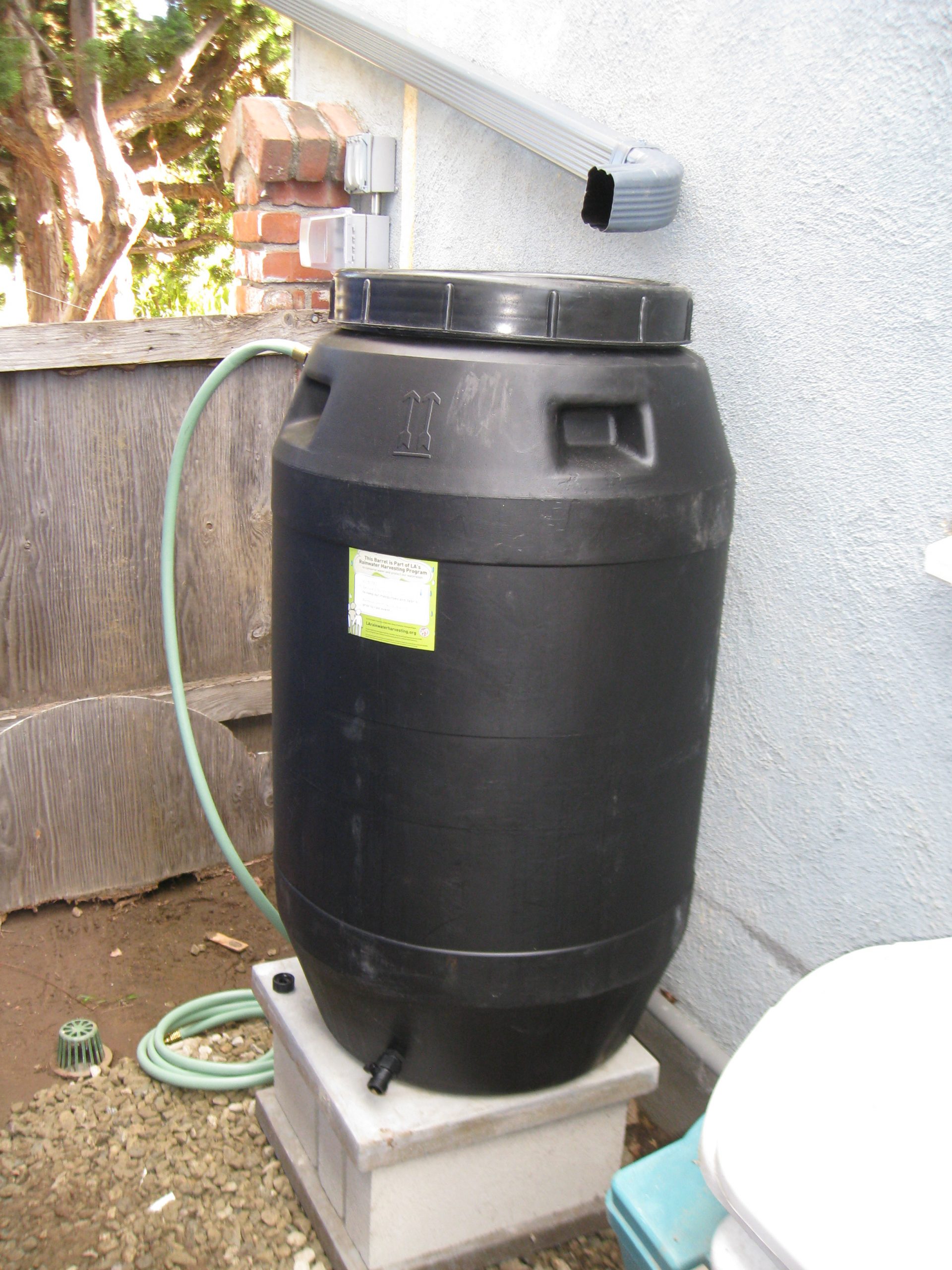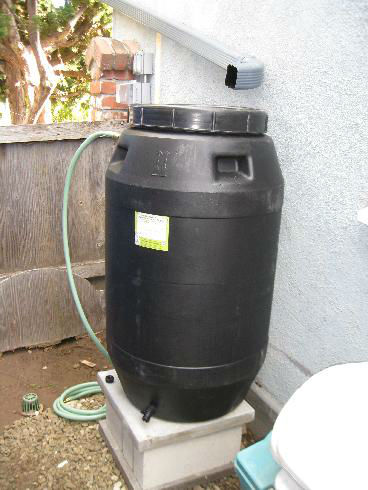Here’s a question urban gardeners ask themselves at least once while standing next to a garden hose as the smell of chlorine wafts across the yard. George from Wisconsin proposed it this week on Ask Gardenerd (edited for length):
“Hi, A few years ago I noticed that my garden never looked as good after I watered it with tap water as it did after a rain. At first, I attributed it to laziness: maybe I was stingy since I had to haul water from the faucet to my garden. Someone pointed out that tap water has dissolved chemicals in it, and that those have an impact on the plants. I’ve since switched to a rainwater collection system for my garden, even for my houseplants. Because I live in where temperatures fall below freezing, my access to rainwater is limited. Now I water my house plants with distilled water, which seems to work well enough, and – in theory – should solve the dissolved chemicals problem. Would spring water be better for the plants? Spring water picks up dissolved minerals (which might be beneficial to the plants) as it percolates through the bedrock, whereas the distilled water – theoretically – is sterile. I’ve never tested this idea. Do you have any sense of which might be better, or whether any research has been done on this question? I’d love to know. Thank you. George (Wisconsin)”
We love questions like this George. You’re thinking about your resources, which is good. We didn’t find any scholarly studies on the subject, but here’s what we found:
You’re right, distilled water is processed in a way that removes all impurities–minerals and microbes included. Some sources say that watering with distilled water over long periods of time can cause problems, but others say it’s the best choice. Spring water is bottled at an underground source, but still has whatever was present in that water source – minerals including calcium and magnesium as well as sodium and potassium. Spring water is treated to kill bacteria and other microbes. We found several sources recommending spring water over distilled. Both spring and distilled water processes require moving water from one place to another, and bottling it for sale in a plastic bottle. Therefore it is very expensive compared to tap water.
It’s safe to say that rain water is the best source of water for garden plants, except perhaps in places with acid rain. Rain water is alive (because of organic matter and atmospheric nitrogen captured along with the rain in your barrel), and has a slightly acidic pH, which plants prefer. Tap water is treated with chlorine or chloramine to kill microbes and while chlorine disperses when water is set out to evaporate, chloramine does not. It also has a more alkaline pH.
If your rain barrels freeze over winter here are a couple of options:
- Store some water indoors at the end of the season for use on your house plants. Use several 5 gallon water jugs with a Water Bottle Pump to easily fill your watering can.
- Utilize a heating coil often used in chicken keeping to prevent freezing on small amounts of water like this one: Heated Base For Metal Poultry Founts, 125-Watt

Because of the expense and the environmental impact of bottled water (only 3% of containers are recycled and the process uses oil to fabricate the bottle, not to mention in places like California bottled water companies are pumping groundwater to deplete aquifers at an unsustainable rate without paying a fair share for the water), we suggest using a home water filter that removes chlorine and chloramine as well as heavy metals, but leaves beneficial minerals in place. Our favorite for gardening (hooks up to a hose) is one offered by Boogie Brew. The guys at Boogie Brew are fanatical about pure ingredients for their compost tea. They’ve done the research and developed a filter that is perfect for supporting healthy microbial life in soils.
We haven’t tried to adapt this filer for indoor use, but we assume there is a way to connect a hose to the kitchen sink with some kind of aerator adapter, then attach the filter. We’ve seen adapters for attaching coil hoses to kitchen sinks, like this one: LDR 530 2050 Faucet to Hose or Aerator Adapter Lead Free
So that may not be the answer you were looking for, but we aim for sustainable systems here at Gardenerd. Try some of the ideas above to keep utilizing your rain water all winter long instead of buying bottled water. It will save you money over time with minimal use of resources.
Hey Gardenerds, if you have ideas to add to George’s question, share them here!



If you leave your tap water in an open jug over night the chemicals will evaporate out of the water.
That’s true of chlorine, Jennifer, but not of chloramine. Chloramine does not dissipate, so be sure to check with your municipal water provider to see which they use. Los Angeles is on chloramine.